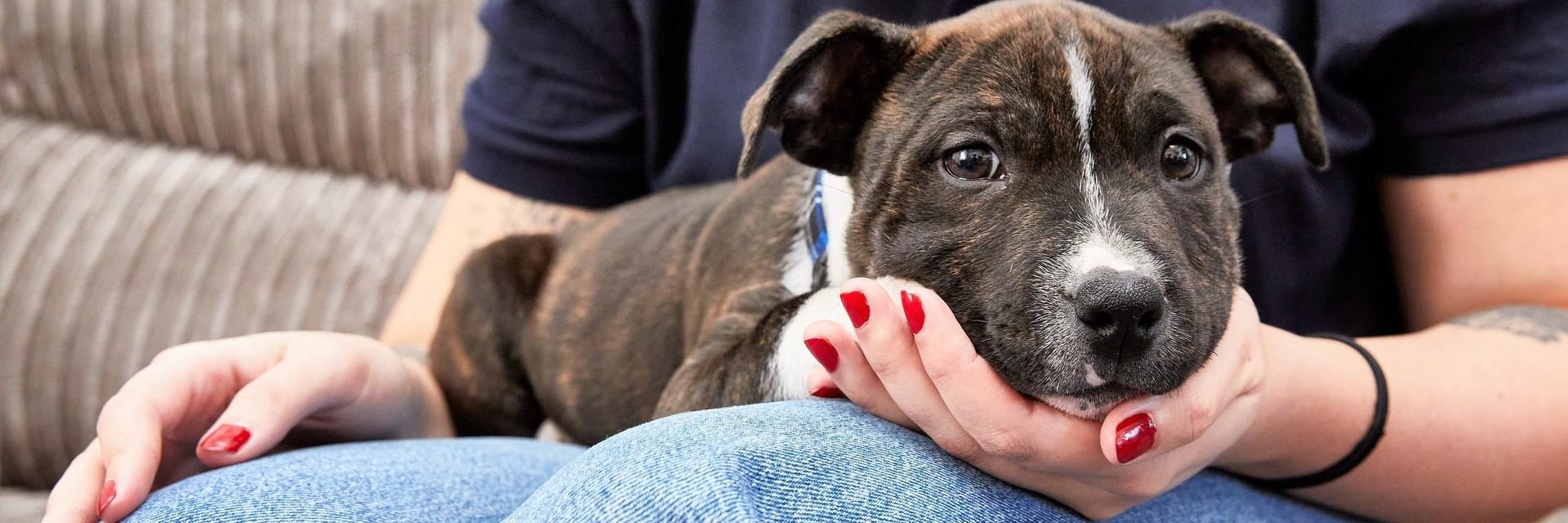
Finding an Abandoned or Lost Pet
What to do if you find a dog or cat without an owner
You might come across a dog or cat walking around without seeing an owner. For cats this is not too unusual, many cats are allowed to roam outside of the house. Therefore, it is sometimes difficult to determine if the cat is actually lost or just out for a walk. For dogs it is more uncommon in many areas of the world. Of course, in some countries, dogs roaming alone are part of everyday life, eastern Europe and Southeast Asia are examples for this. But for countries where stray dog populations are uncommon, a dog without a noticeable owner is more likely to be lost or abandoned.
If you find a lost animal, it is great if you take a step to help them. But please be careful, pets that are stressed might lash out of fear.
found a dog?
Follow these steps
- Step 1 – Contact to the dog
Try to get the dogs attention. Many stressed dogs do not want to be touched by strangers; they tend to run away if a stranger is trying to capture them. Try to have a high and very friendly voice, get some treats to gain the dogs attention and trust. Once the dog allows you to touch it, you can try to fasten a leash to the dog. Be careful, scared dogs might try to fight you off and might snap at you out of fear and stress.
- Step 2 – Determine signs of ownership
Is the dog wearing a collar, is there a tag on there? If yes, contact the number on the tag. If there is no tag, you can visit a vet or local shelter with the dog to find out if the dog is microchipped.
If you are in an area where dogs are commonly walked, you should ask other people in the area, if they heard about a lost dog and let them know that you found one. There is a good chance the owner is in the area, searching for their pet. - Step 3 – Medical attention
If the dog has any visible injuries, for example blood on the body, or they are limping, you should take the animal to the vet immediately. The dog might have been attacked or been in a car accident.
- Step 4 – Contact local shelter
Once first aid has been taken care of, you should contact your local rescue group, animal shelter or the police to find out what you should do next. Usually, the shelter would ask you to bring the dog in. The owners might come looking for them.
Found a cat?
Follow these steps
- Step 1 – Stray cat, lost or owned?
The first step is to figure out if the cat is feral or stray, lost or has an owner. Ask your neighbours if they know the cat or know who owns them. Stray cats are usually shy or skittish around humans. They are often very hungry, look a bit more unkept, might have injuries. A lost cat on the other hand might be friendly to humans, looking for someone to help them, but also hungry.
- Step 2 – Check for microchip
If there are no visible signs of ownership (e.g., collar) you can try to catch the cat. Tame cats can just be picked up but be careful not to get scratched or bitten. You can also use a towel to cover the cat and pick them up. For more shy cats you can use a humane live trap (some shelters rent these out). Take the cat to a vet and have them checked for a microchip. If the cat is chipped you can determine who the owner is, contact them and inquire about the cat.
If the cat is not microchipped, you can do several things to find the owner. Put up “Found Cat” posters in the neighbourhood, contact your local shelter or post in your neighbourhood Facebook page.
- Step 3 – Medical attention
If you find a cat that is injured, it is important to bring the cat to the vet, to get them treated. This is especially important if the animal is severely injured (e.g., by a car accident). If you feel unable to afford the costs for the treatment, you should contact your local shelter and hand the cat over to them, so they can take care of the medical needs of the animal.
- Step 4 – Call local animal shelter
Once you were able to catch the cat and have taken care of the immediate medical needs and checked for the microchip, you should contact your local animal shelter or rescue group, to find out what the standard procedure is for found cats. Many shelters will take the cat in, as owners might come to the shelter to inquire if their pet has been found.
- Step 5 – Want to adopt the found cat
If you want to adopt the cat that you found later, you can let the shelter know. Once a period has passed, where the owners might come looking for the cat, you can apply for adoption with the shelter. There is a good chance, if you meet the shelters requirements for adoption, that you can keep the cat.
Tip for cat owners
Microchipping cats is especially important. According to a study, microchipping and registering your cat increases the chance to find your lost cat again from 2% to 38%1!
How to find out if an animal is dead or not
In most cases, it will be obvious when a pet is dead. Some hours after death, the so-called rigor mortis sets in, which is an easily recognisable and reliable indication of death; the deceased animal becomes stiff and immobile. Rigor mortis, however, dissipates about 24 to 48 hours after death. However, immediately after an accident or traumatic incident, it might not be so obvious. In these cases, it can be difficult to know whether the animal is alive or not. You will need to check for signs of life and ensure the animal receives urgent medical care if required.
Ways to find out if an animal is still alive:
- Checking for signs of breathing: Can you see the animal's chest or stomach moving?
- Checking for pulse: In dogs and cats, the pulse is best palpated on the artery on the inside of the back thigh.
- Checking for heartbeat: To do this, the animal must lie on the right side of the body. Place the flat of your hand on the heart region and try to feel for a heartbeat.
- Checking for reflexes: You can pinch the skin between the toes, touch the upper or lower eyelid with your finger and touch to the eyeball with your finger (be careful not to harm the eye). If there is any reflex, the animal is still alive.
 Please be careful! If you delete this page, consider that it could be used within an other language version.
Please be careful! If you delete this page, consider that it could be used within an other language version.
